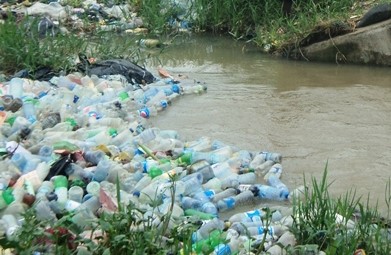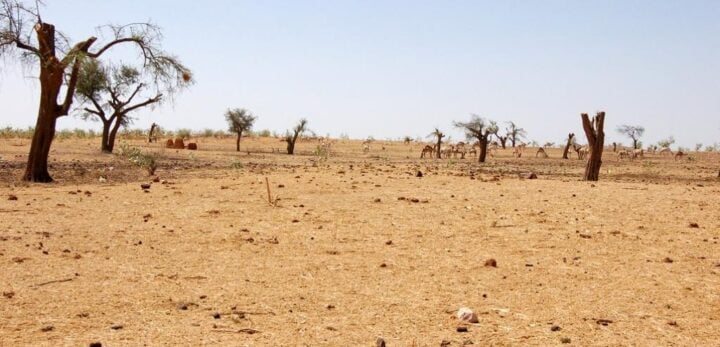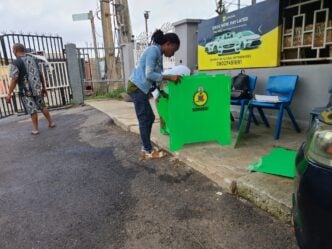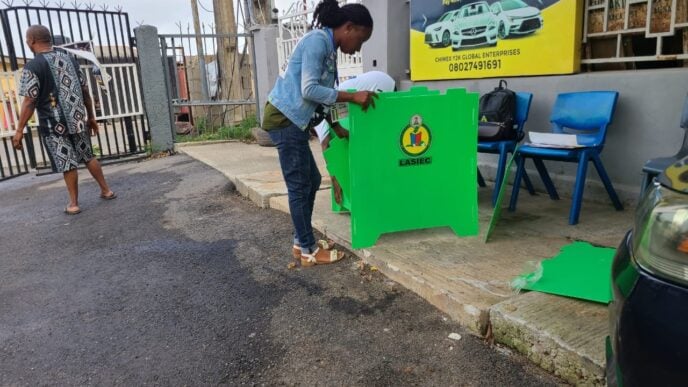Plastic waste in a stream
BY DARE AKOGUN
As Nigeria prepares to join world leaders at the Global Plastics Treaty INC‑5.2 negotiations in Geneva, expectations are high. The country’s recent legislative push anchored by the Climate Change Act (2021) and National Plastic Waste Policy (2020) offers a strong policy foundation. But back home, the reality on the ground tells a different story.
From Lagos to Lokoja, blocked drainage systems, plastic-clogged rivers, and illegal dumpsites have become all too common. Flooding caused by heavy rains overwhelmed gutters filled with discarded plastic sachets and bottles, displacing dozens. The irony? Nigeria has committed to phasing out single-use plastics by 2025.
So why does the country remain trapped in a plastic pollution crisis, despite having “some of the most forward-looking environmental laws in Africa,” as experts describe?
Advertisement
Nigeria’s Climate Change Act, signed into law in 2021, formally commits the nation to climate mitigation and adaptation. It mandates a five-year carbon budgeting cycle and the creation of a National Climate Change Council (NCCC), with the power to supervise emission targets including plastic waste reduction.
The National Policy on Plastic Waste Management (2020) adds specificity to the plastic fight: banning non-biodegradable plastic bags, promoting circular economy initiatives, and encouraging extended producer responsibility (EPR). The policy, on paper, is aligned with international best practices.
But implementation? That’s where the cracks begin to show.
Advertisement
Enforcement Gaps and Fragmented Governance
Agencies like the National Environmental Standards and Regulations Enforcement Agency (NESREA) and the Federal Ministry of Environment are tasked with enforcement. However, both institutions remain chronically underfunded and understaffed, receiving less than 2% of climate-related budget allocations combined in 2024, according to DA News analysis of the Appropriation Act.
Chidi Umeh, an environmental governance researcher based in Abuja, said the will is there, the policy is solid, but the structure to implement it is weak. “Plastic waste policy needs inter-ministerial enforcement. Right now, every agency is working in silos,” he said.
This disjointed governance makes it difficult to harmonise climate and waste management laws at federal, state, and local government levels resulting in inconsistent regulations, poor enforcement, and limited monitoring.
Advertisement
In line with its climate law, Nigeria aims to enforce Environmental, Social and Governance (ESG) reporting standards across all sectors by 2027. The idea is to make corporate entities, especially plastic producers and distributors, accountable for their waste.
But while multinationals may comply, thousands of local plastic manufacturers and importers remain outside any structured reporting or waste take-back scheme.
Subnational Efforts: Patchy and Uneven
States are key players in environmental enforcement. Yet, only a few such as Lagos, Rivers, and Ogun have developed state-specific plastic waste regulations or set up environmental task forces. North-central states like Kogi, Kwara, and Niger, which face both flood risks and rural plastic dumping, have no tailored plastic reduction plans.
Advertisement
The Nigeria Governance & Climate Change Programme (NGCP), supported by the UK’s Foreign Commonwealth & Development Office (FCDO), is working to mainstream climate action into state budgets. But it is currently limited to a few pilot states, none of which are in the North-Central region.
Environmental scientists argue that plastic waste management cannot be treated in isolation. In flood-prone communities, plastic blockage of waterways intensifies flooding, damages infrastructure, and worsens displacement especially in rural areas already vulnerable to climate-induced migration.
Advertisement
Interestingly, while online communities have taken to platforms like X (formerly Twitter) and Facebook to highlight plastic dumping and demand cleaner cities, climate literacy remains low in most parts of Nigeria.
Efforts to raise awareness have largely been driven by NGOs and youth groups. Government-backed climate education programs are sparse, poorly funded, and fail to reach rural populations.
Advertisement
The Road to Geneva and Beyond
With the INC‑5.2 Treaty negotiations offering a chance to formalise binding international agreements on plastic production, consumption, and waste management, Nigeria’s presence is significant. But experts caution: treaty signing is the easy part.
Advertisement
Translating treaty provisions into domestic law, action plans, and enforcement mechanisms is where Nigeria must prove its mettle.
“If we don’t fix the implementation architecture, the plastic treaty will just be another international commitment we can’t meet,” warns Dr. Umeh.
Nigeria’s war against plastic pollution is not just an environmental challenge it is a governance test. From federal ministries to local waste authorities, success depends on collaboration, enforcement, and adequate financing. Without these, the plastic choking Nigeria’s cities and waterways will remain a dangerous symbol of failed policy implementation.
As Geneva beckons, the question is clear: will Nigeria match its climate commitments with real action or allow plastics to remain our most visible sign of institutional neglect?
Dare Akogun is an environmental and energy transition journalist based in Ilorin. He can be reached via [email protected]
Views expressed by contributors are strictly personal and not of TheCable.










